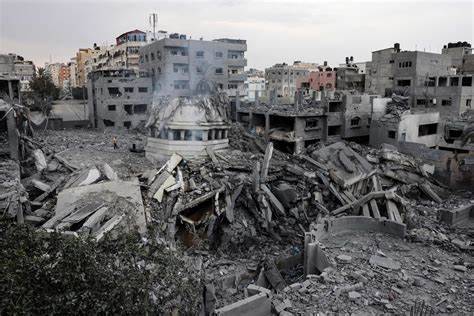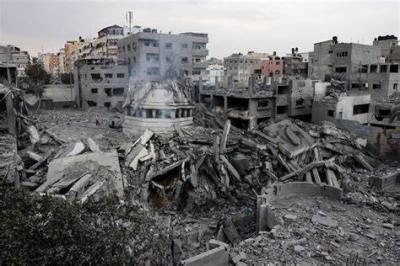The Israeli newspaper Maariv highlighted the main points of contention in the ceasefire and prisoner exchange negotiations with Hamas as a summit meeting between the two sides approaches.
A week after leaders from the United States, Egypt, and Qatar issued a joint statement calling on Israel and Hamas to return to ceasefire talks, a summit is scheduled for next Thursday to resume discussions. In the days leading up to the summit, working-level teams will hold several preparatory talks, and numerous U.S. officials are expected to arrive in the Middle East to pave the way for the summit. Leading the U.S. delegation, Brett McGurk, advisor to President Joe Biden, plans to visit Cairo to discuss border arrangement issues concerning Gaza. Secretary of State Antony Blinken is also expected to arrive in the region. Meanwhile, Israel is cautious about the chances of a breakthrough and advises against rushing to conclusions.
According to sources familiar with the negotiations, "not everything depends on the will and readiness of Israel and Prime Minister Netanyahu to be flexible and compromise." Israeli media continues to hold the belief that "Sinwar, who has recently gained more power in Hamas and has become the head of the political bureau, is not interested in reaching an agreement. However, communications are ongoing, and some progress has been made on several points."
The main disagreements in the negotiations according to Maariv are as follows:
1. **Philadelphi Corridor**: Mediators estimate that Hamas will not object to transferring the entirety of the Philadelphi Corridor issue to the Egyptian side. However, especially in light of Israel's claims of discovering massive tunnels on the Egyptian border, Cairo may be less able to insist on a complete withdrawal of the Israeli army from the area. A solution likely to satisfy both parties may be formulated.
2. **Return to Northern Gaza**: Currently, Hamas continues to insist on the demand for unrestricted passage to northern Gaza. Israel opposes this and demands a procedure to "prevent the passage of terrorists" into northern Gaza.
3. **Complete End to War**: After a period during which Israel began receiving encouraging messages that Hamas was becoming flexible regarding the demand for open-ended negotiations between the first and second phases of the deal, Sinwar recently appears to have reversed course, and the Hamas demand has returned to the table. Israel sees the demand to negotiate a complete end to the war without reverting to hostilities as effectively an end to the war in practical terms, without officially stating so. Israel rejects this.
4. **Release of "High-Profile Individuals"**: Hamas demands the release of a long list of high-profile detainees, including Marwan Barghouti and Ahmad Sa'adat, without a veto from Israel. Israel demands the right to veto the identities of at least some of the prisoners to be released, as well as the deportation of high-profile prisoners to a third country. Hamas insists on their release to Gaza and the West Bank.
5. **List of Living Israeli Prisoners**: Hamas has agreed to increase the number of living prisoners to be released in the first phase of the deal, and current Israeli estimates indicate that the number has now reached about 30 living hostages. Israel conditions a clear list of living prisoners and a maximized number of releases in the first phase.
The biggest problem for Israel is that Hamas has not yet provided a formal response to the latest offer from the mediators. It is also unclear how the appointment of Yahya Sinwar as head of the movement's political bureau affects its position, considering there are few key partners in the decision-making process.




